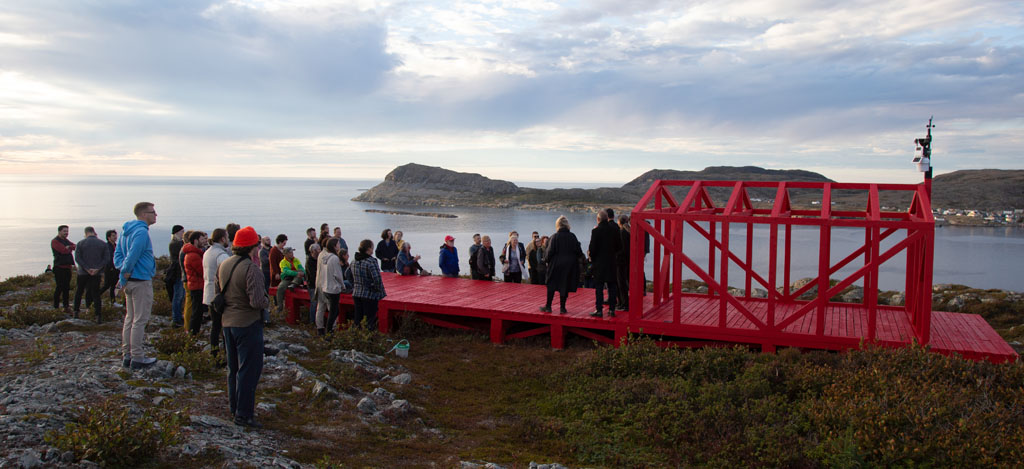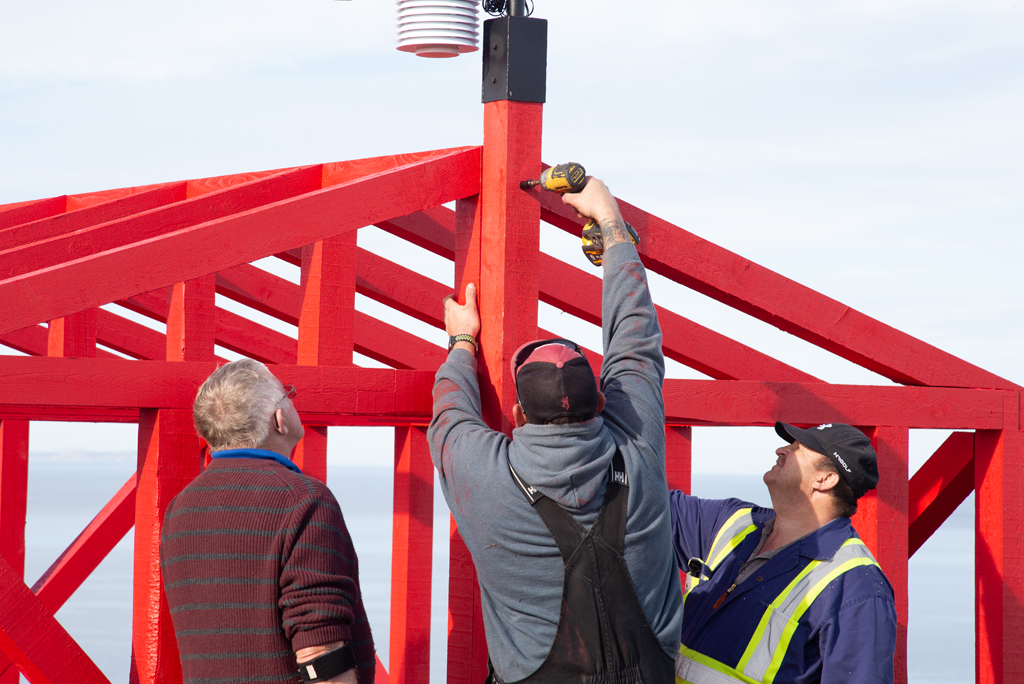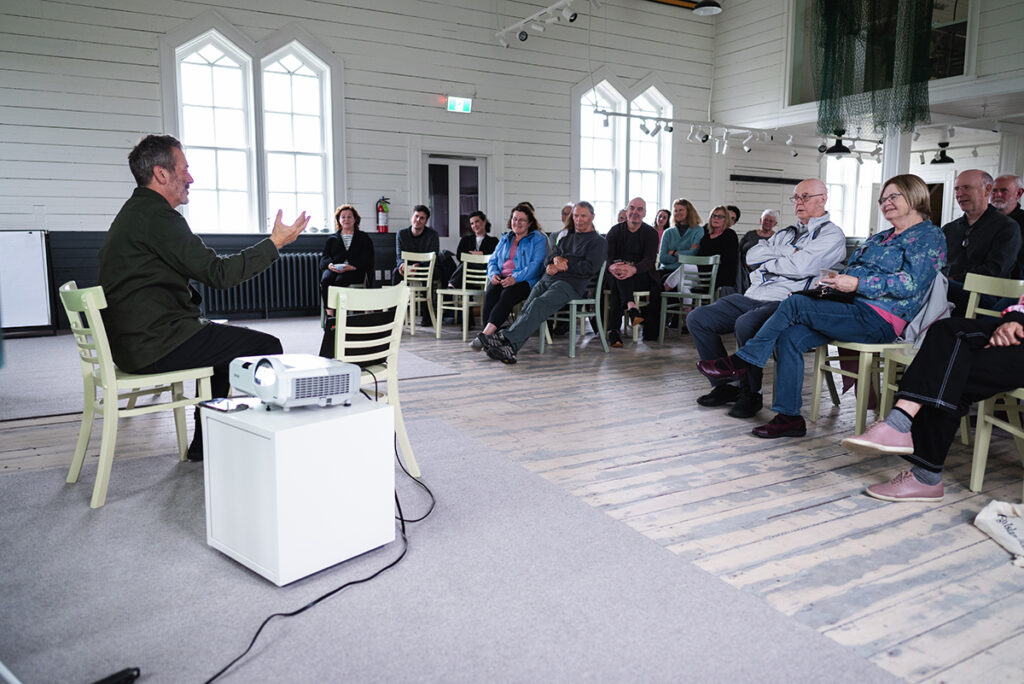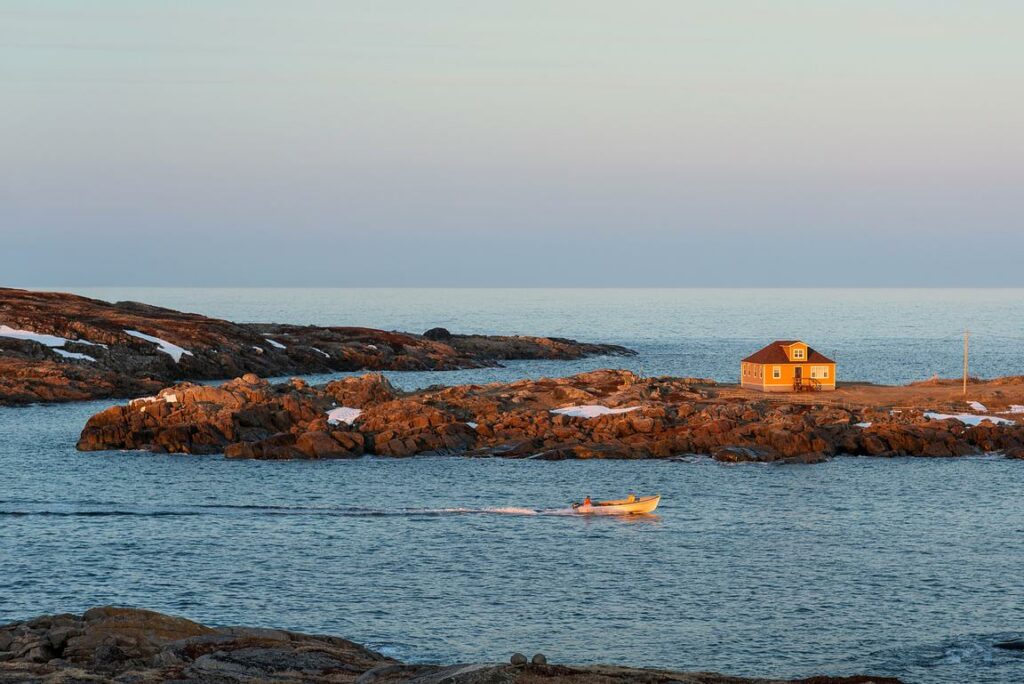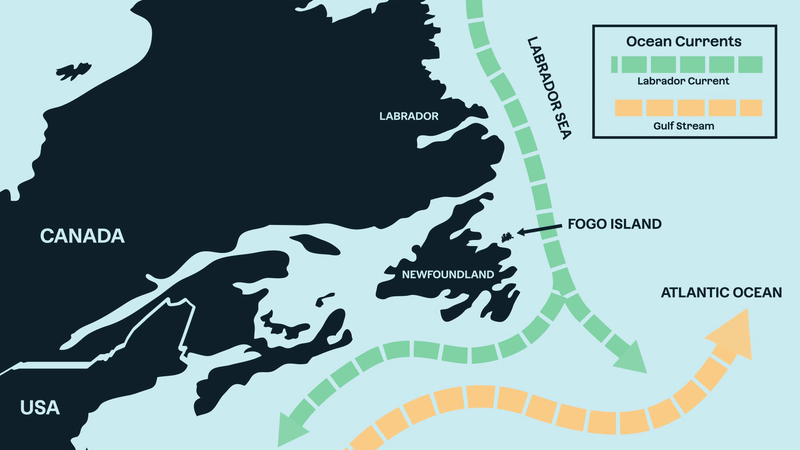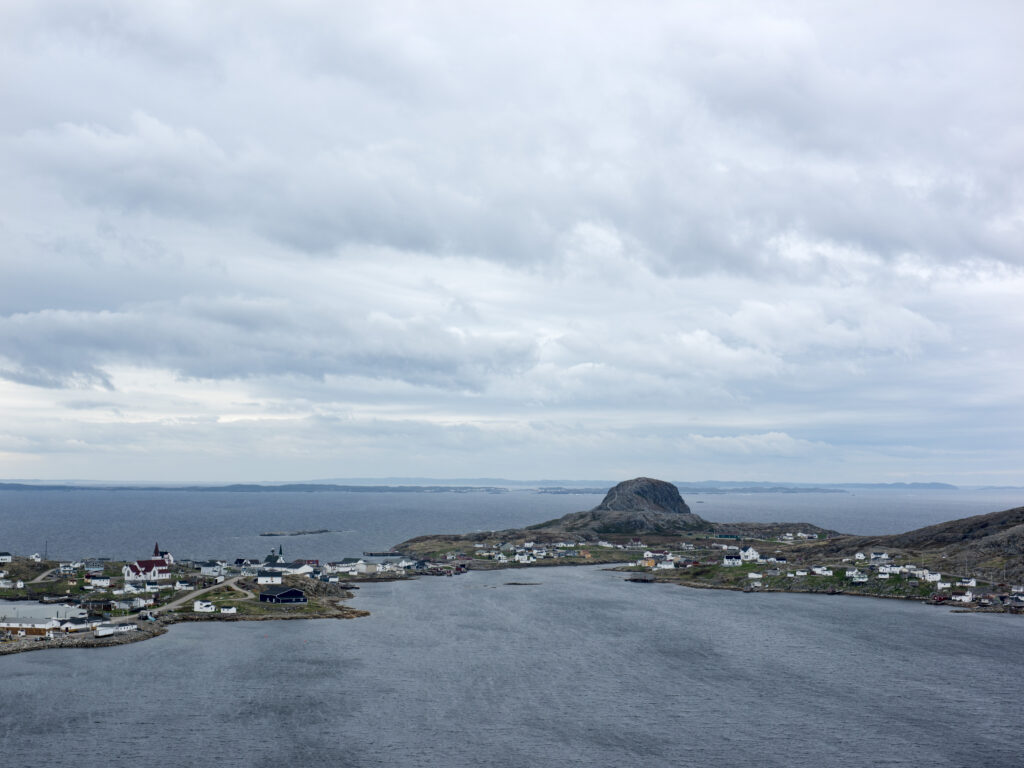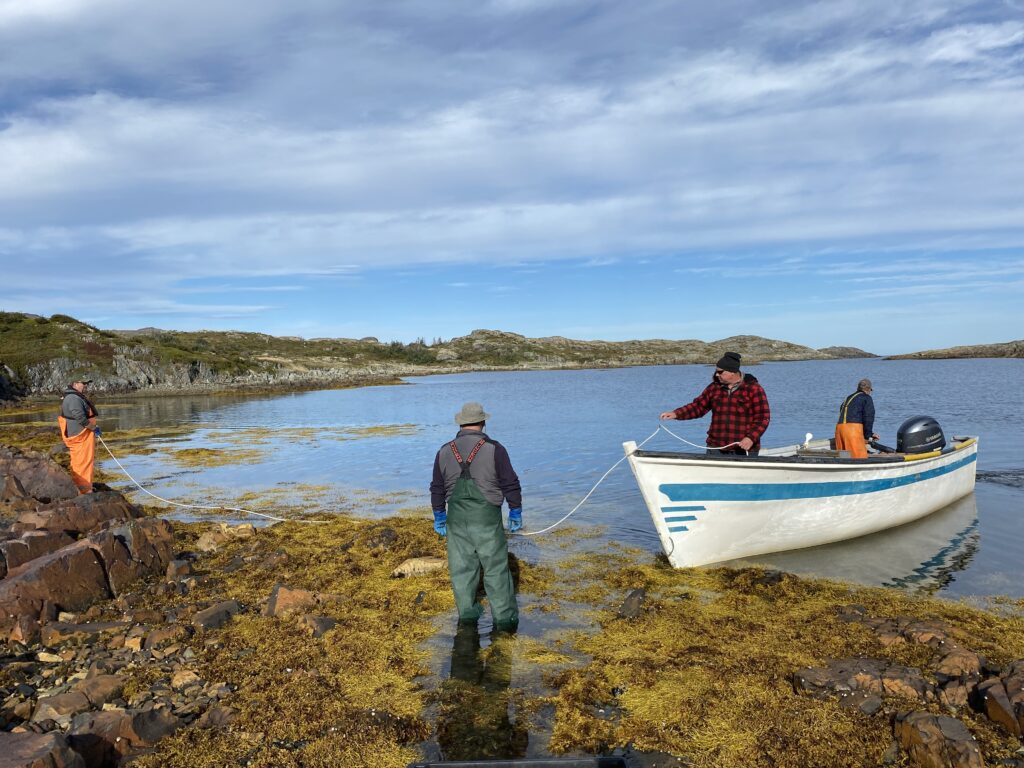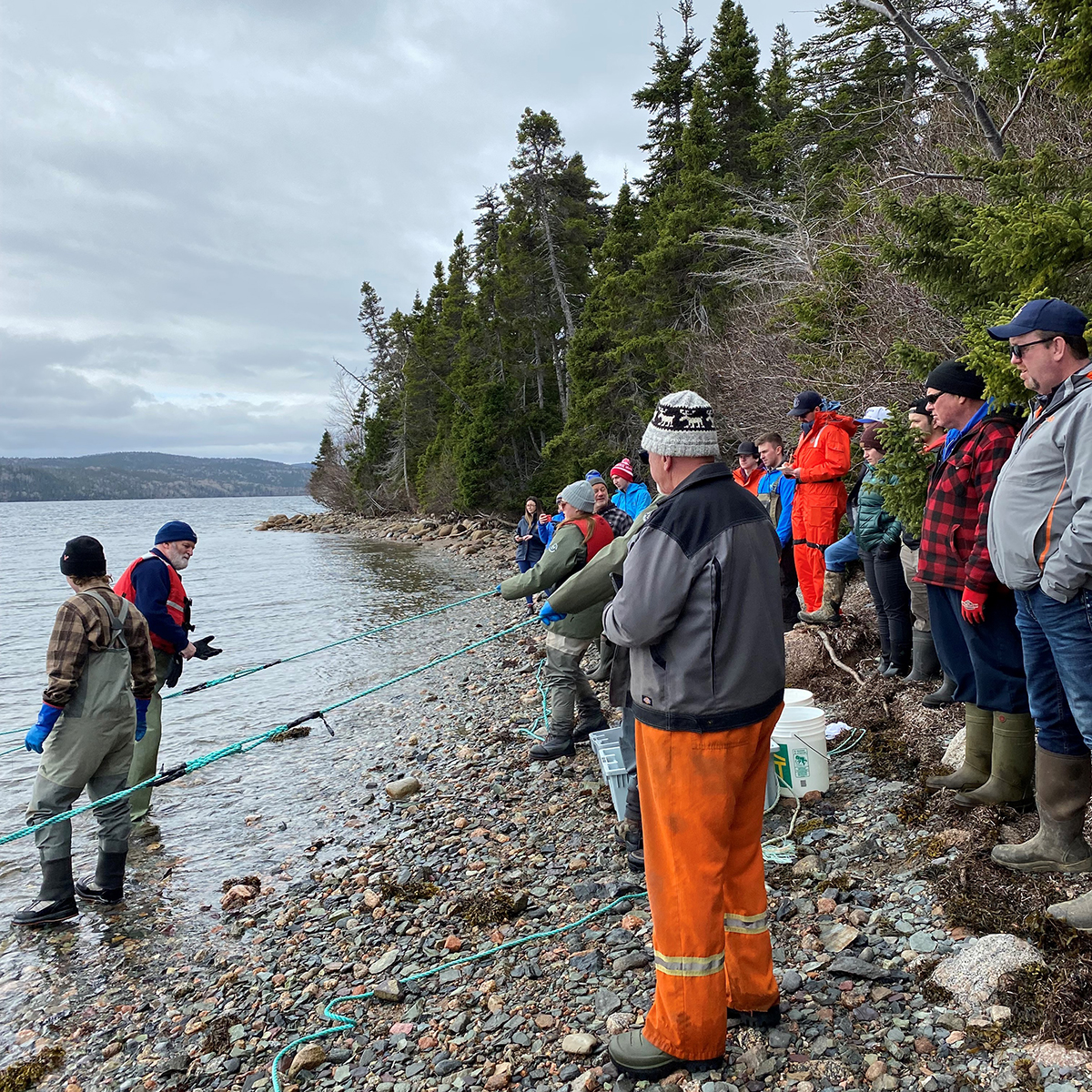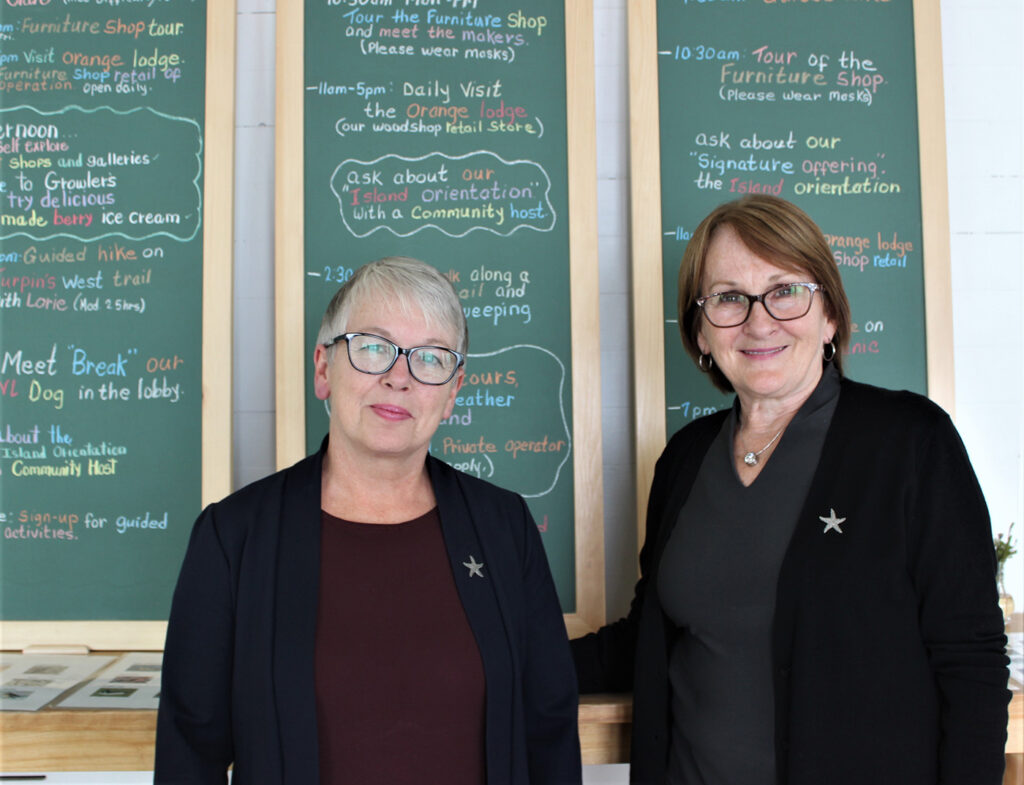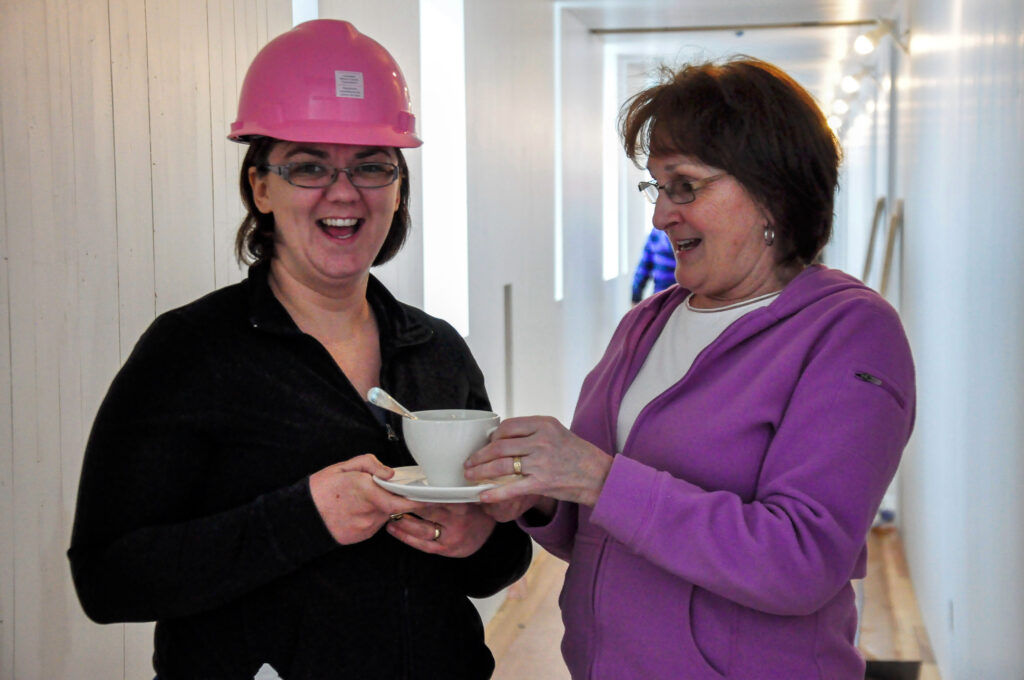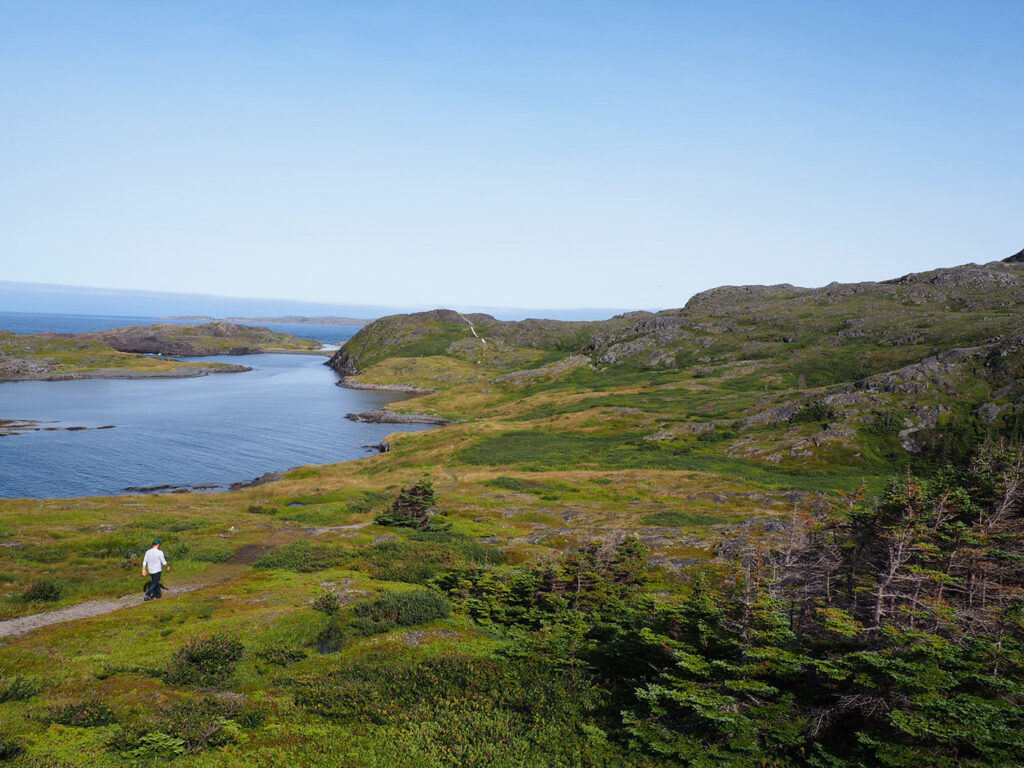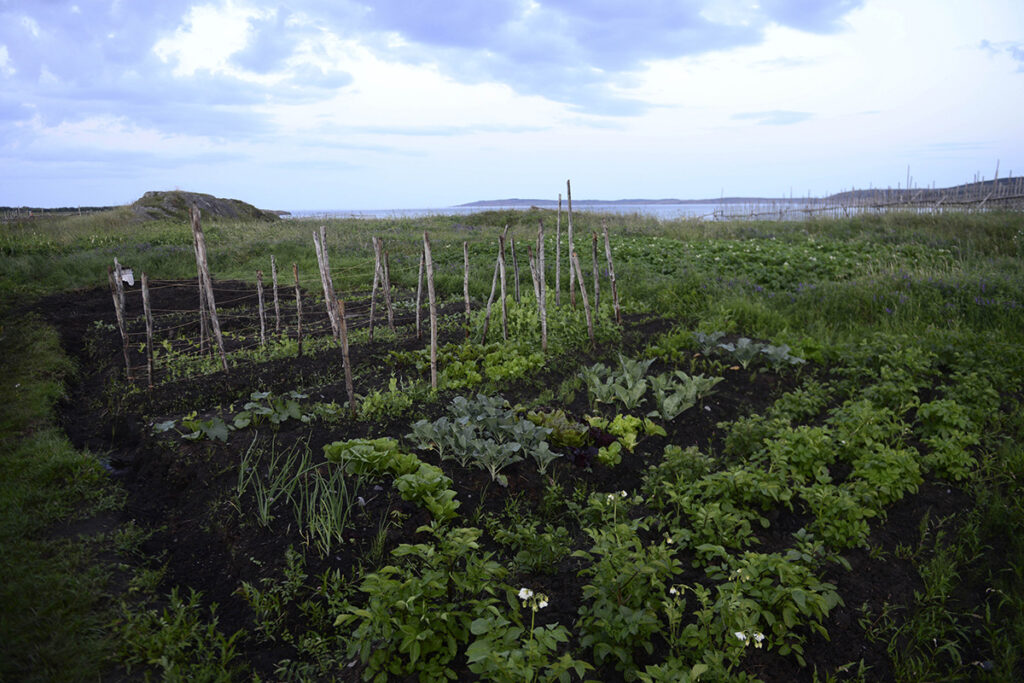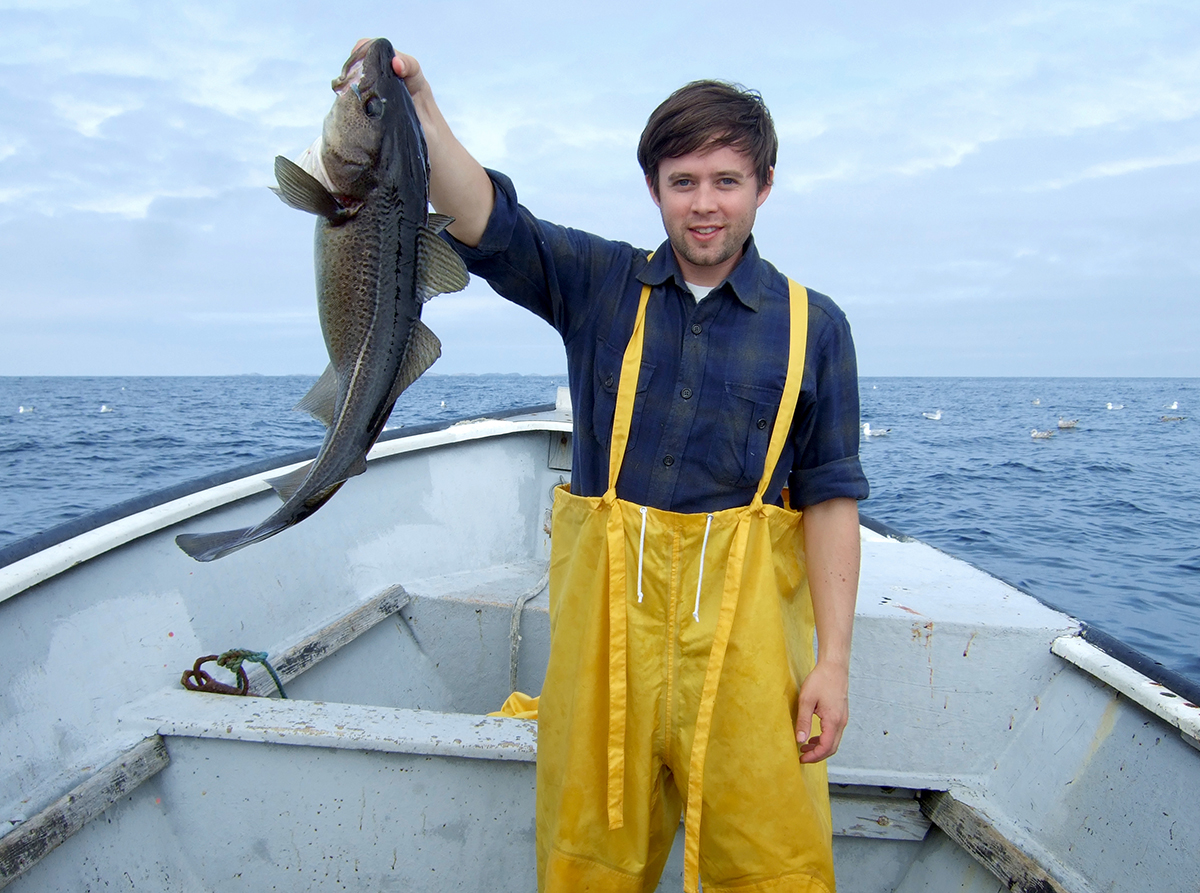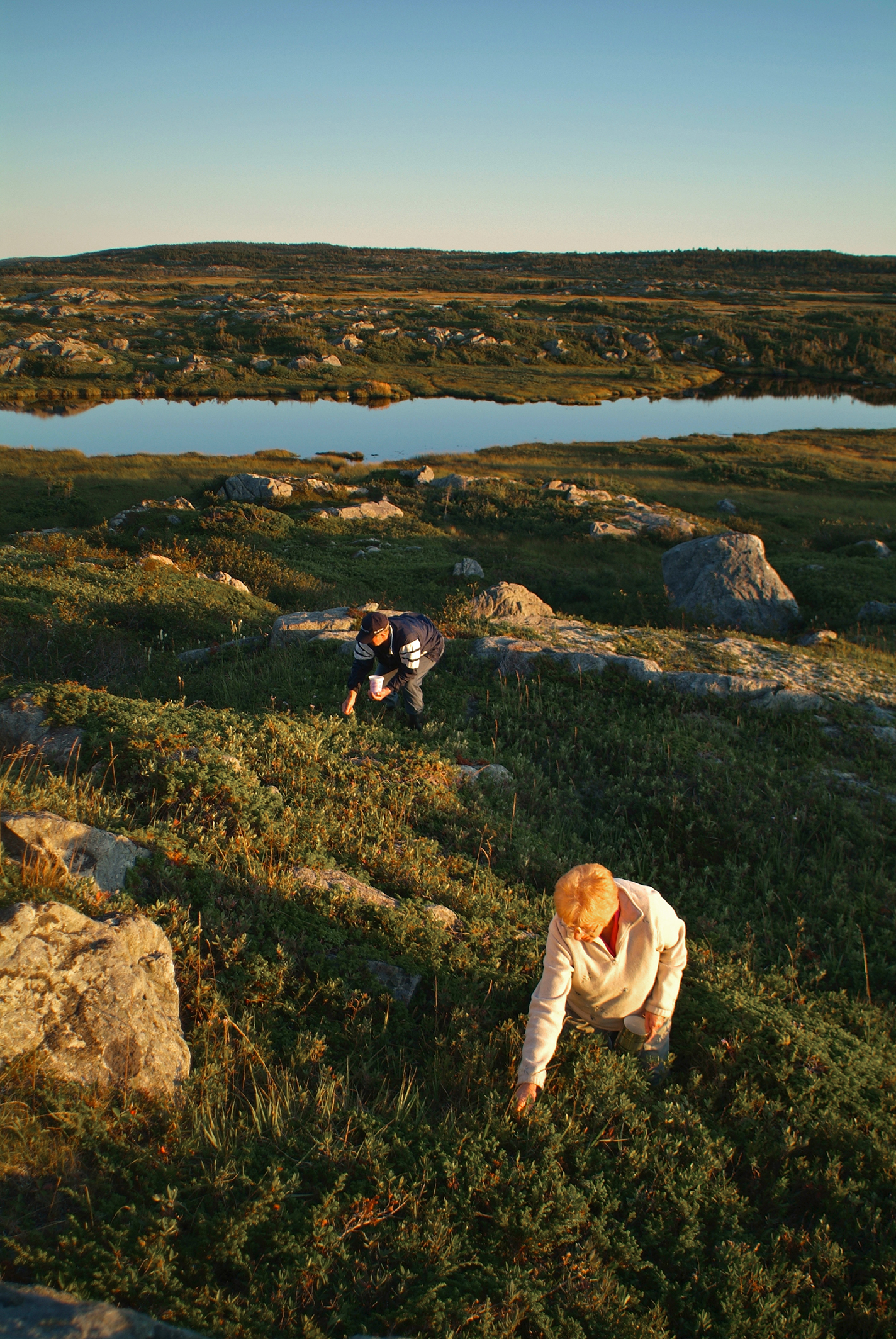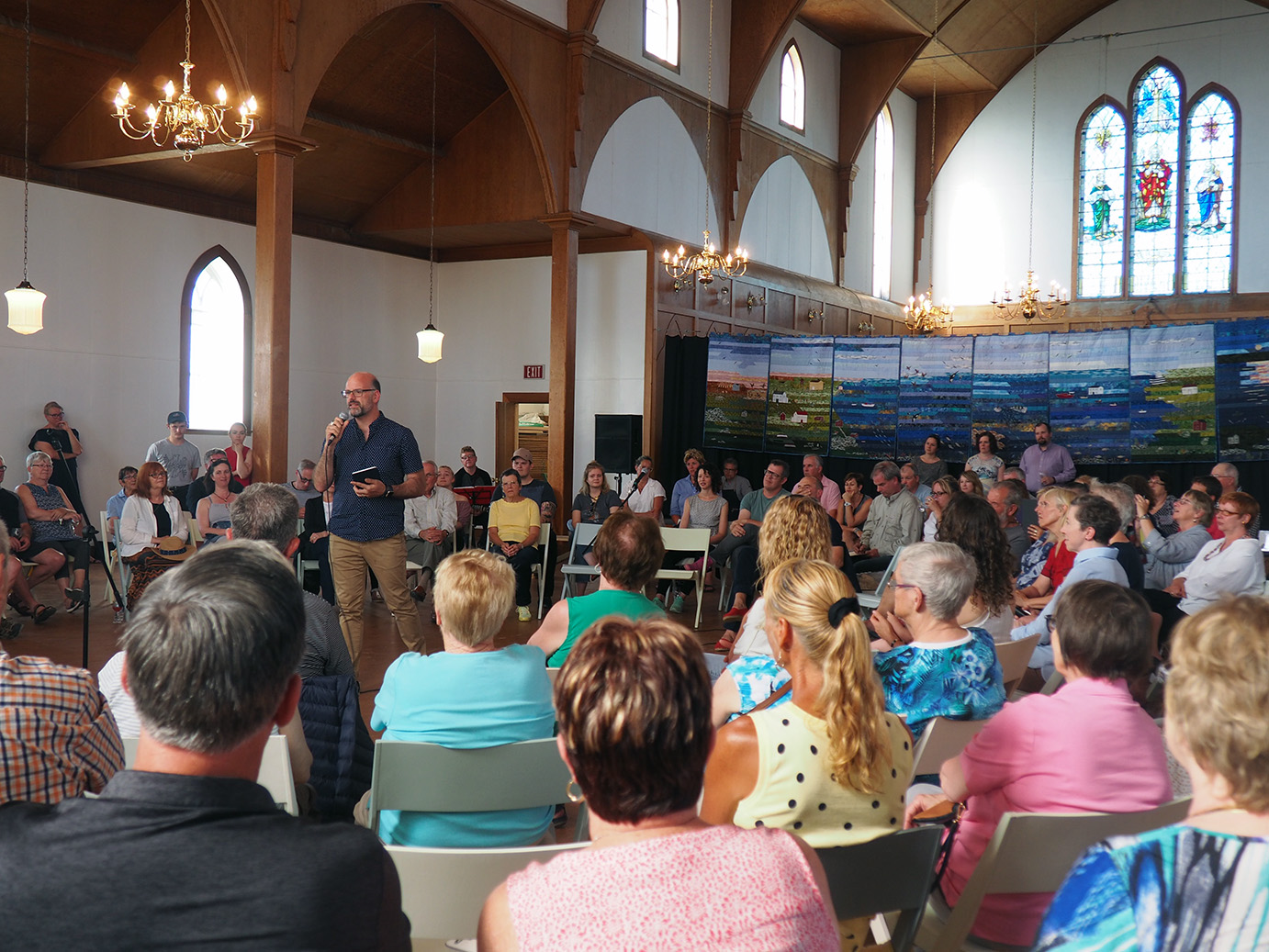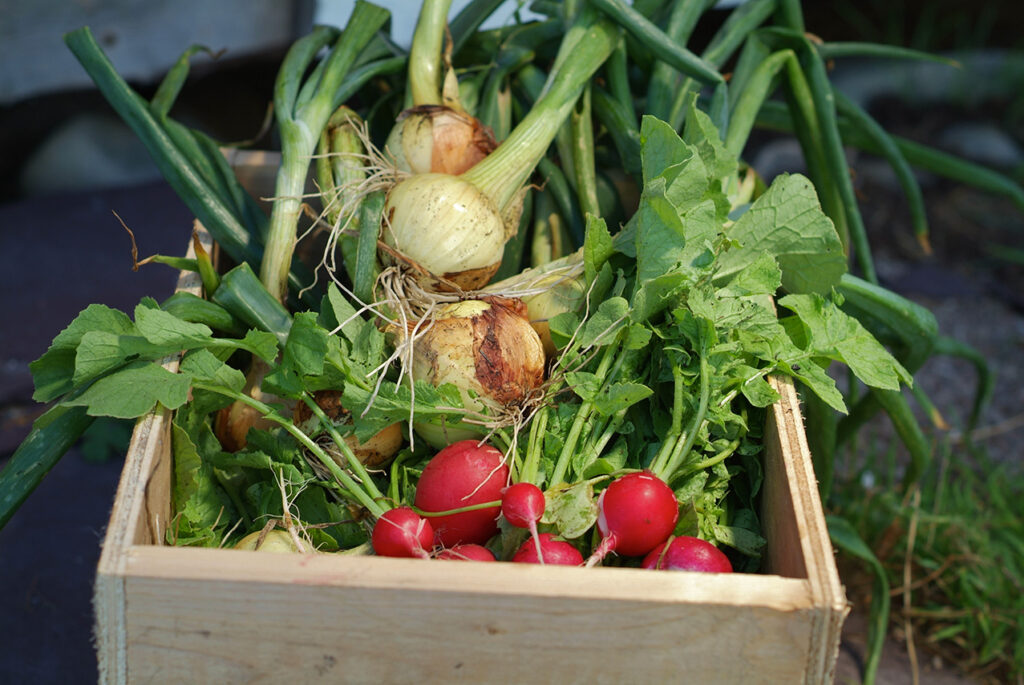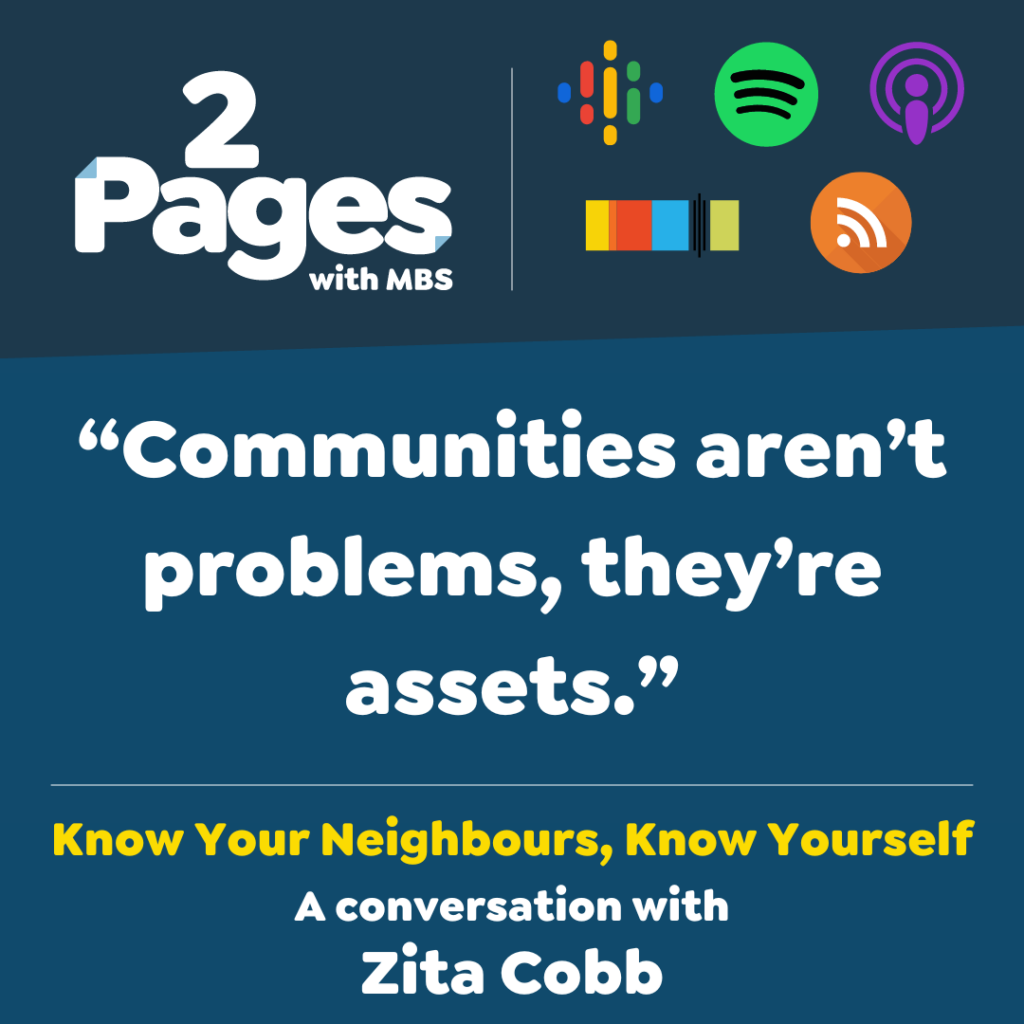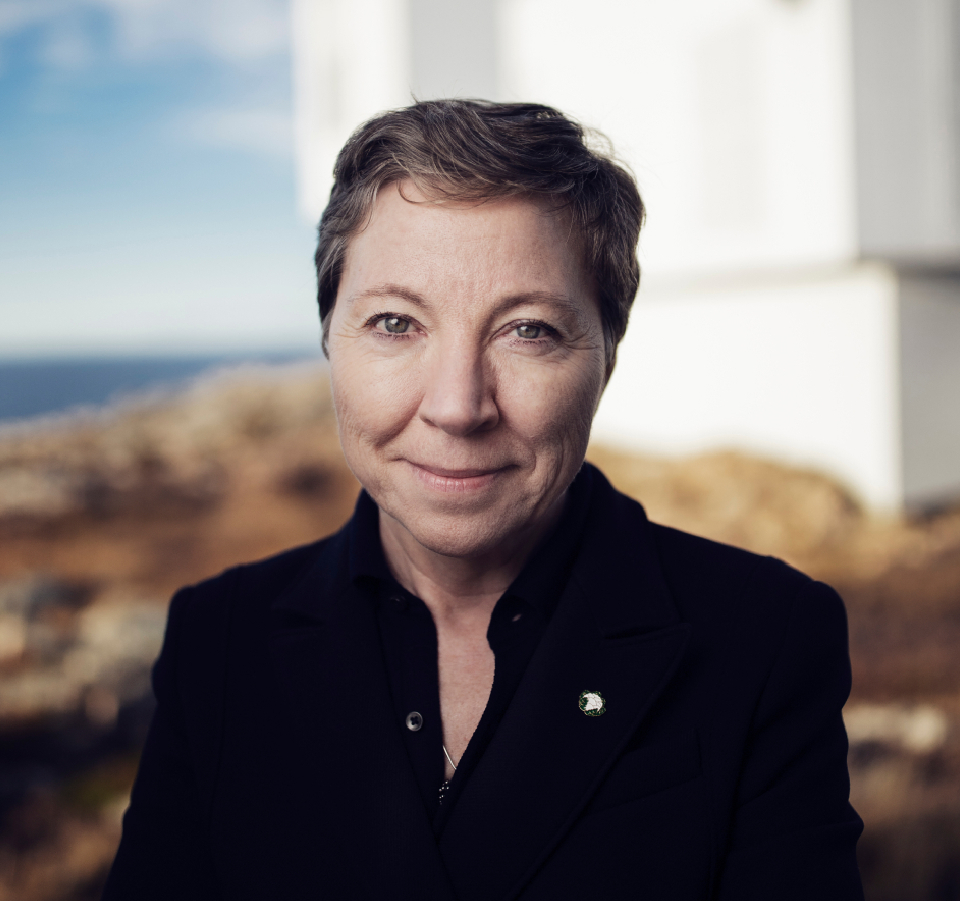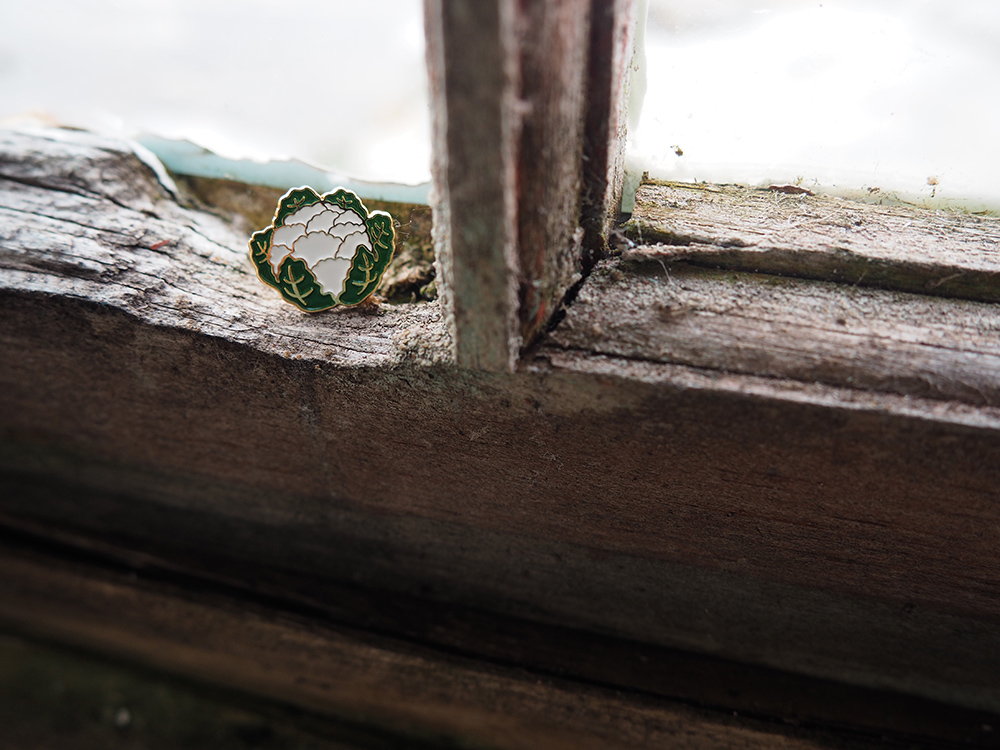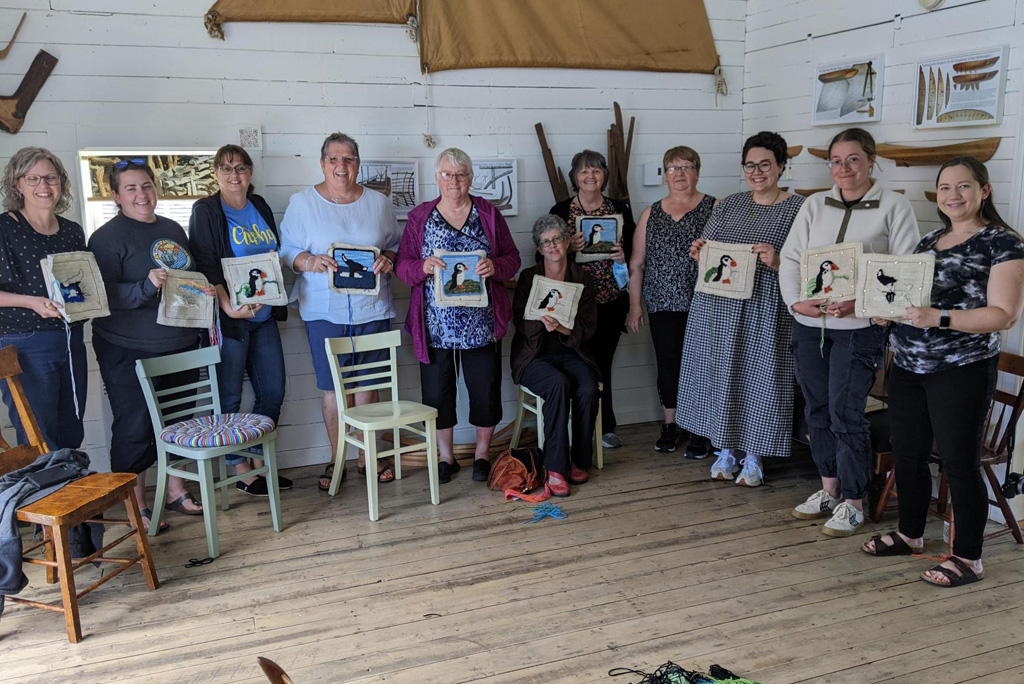
When Joyce Coffin led her first rug hooking workshop at the Punt Premises in the Summer of 2022, she wasn’t sure how many people would actually show up. “Shorefast first approached me to host the event after seeing some of the pieces I was selling at local stores around the island.” At the time, Joyce was one of only a few rug hooking practitioners on Fogo Island, with very few actively teaching.
At the first class, over 20 people filled up the main room eager to learn— their ages ranging from 20 to 80. “We had to split the group into two batches, and I returned after dinner that same day to teach the rest of them,” Joyce recalls. Since then, the group has continued to meet weekly, gradually advancing their skills. While newcomers continue to join the group, the standing date has settled into a comforting routine: “We come together, work alongside each other, and chat.”
Opened to the public in 2019 after a major restoration that was generously funded by past Fogo Island Inn guests, Don & Sheila Bayne, as well as grants from Atlantic Canada Opportunities Agency, and Newfoundland & Labrador’s Tourism, Culture, Arts and Recreation department, the Punt Premises exists to preserve and promote our island’s fishing heritage. Over the past few years, it has evolved into a much needed hub for social convening and Shorefast programming—especially critical after the prolonged isolation of the pandemic.
“Having a place to connect and learn alongside your neighbour is an important part of community economic development,” Amy Rowsell, Shorefast’s Director of Community Engagement and Programming, notes. “It builds social capital and a sense of optimism for the future.”
For Joyce, the Punt Premises has become a second home. “There’s a lot of stuff going on that wasn’t before. It’s a busy spot.”
